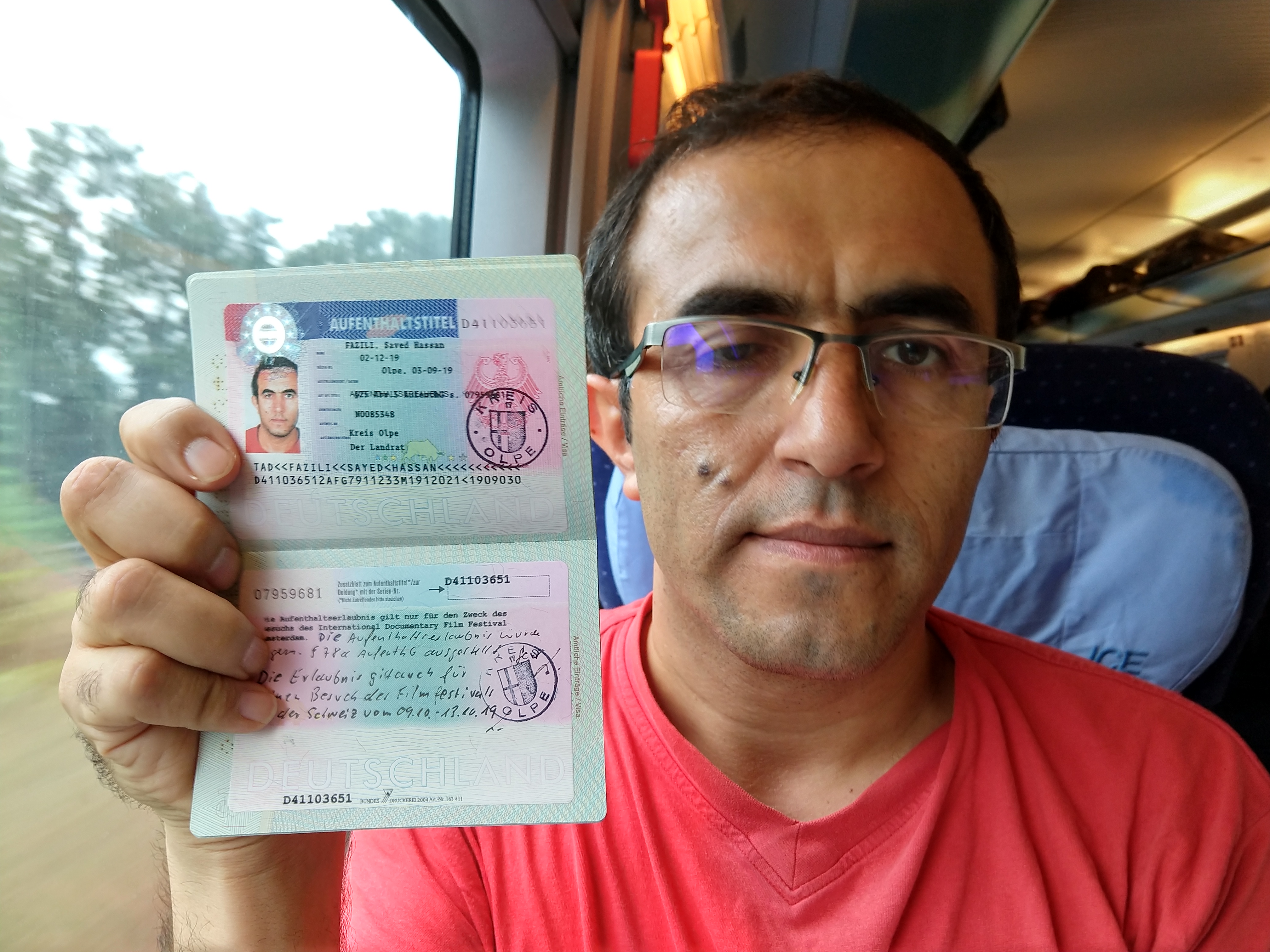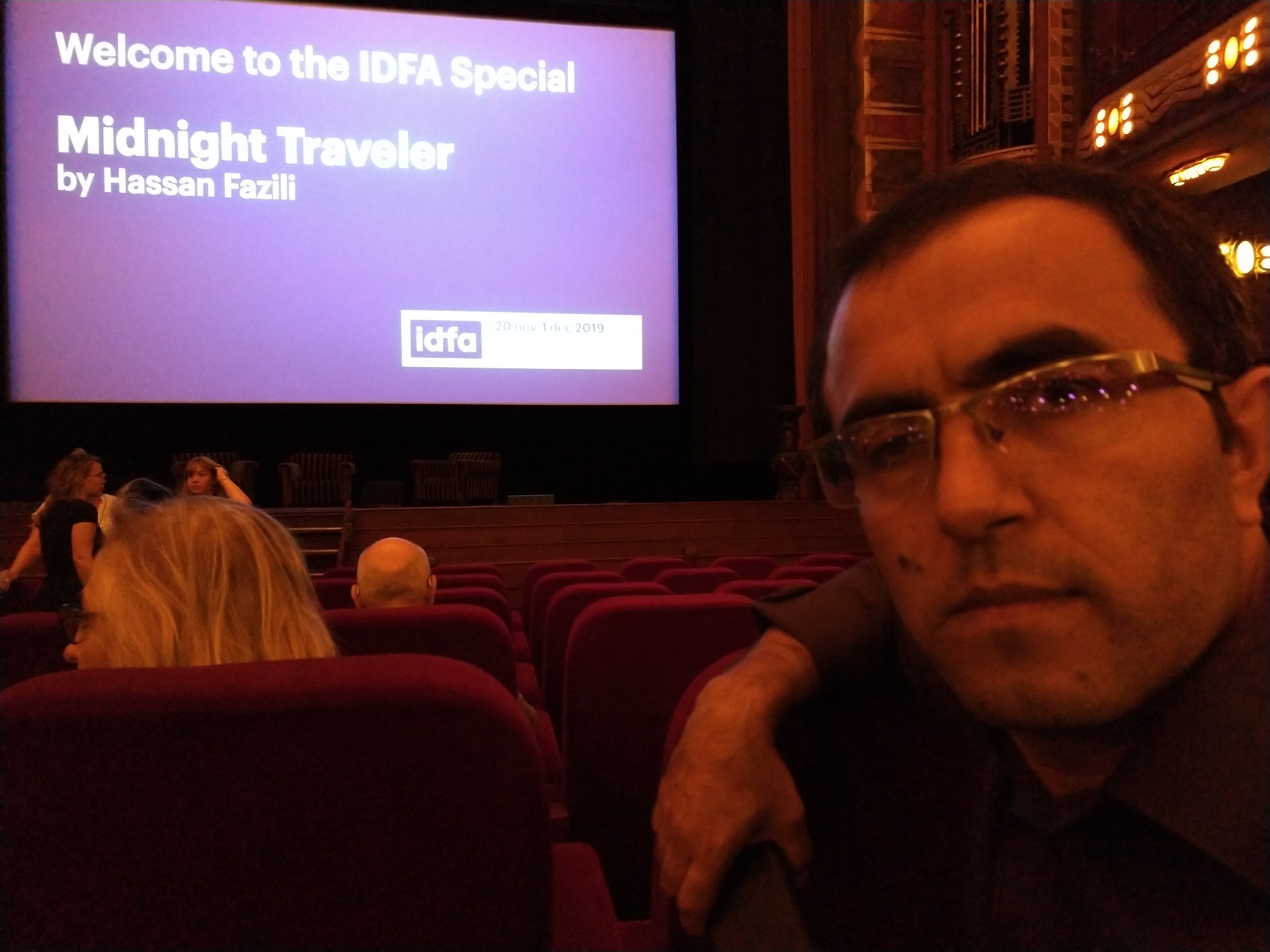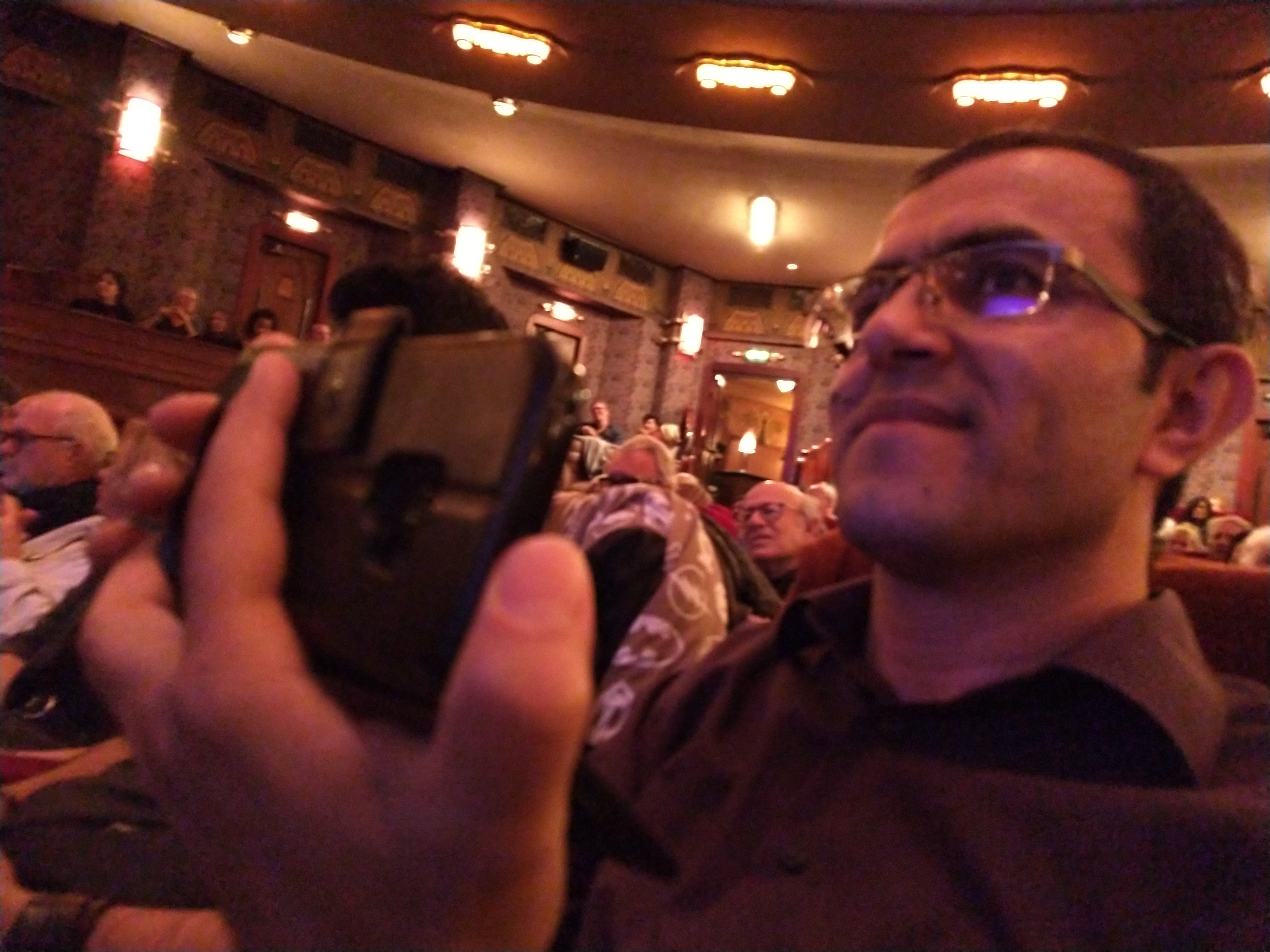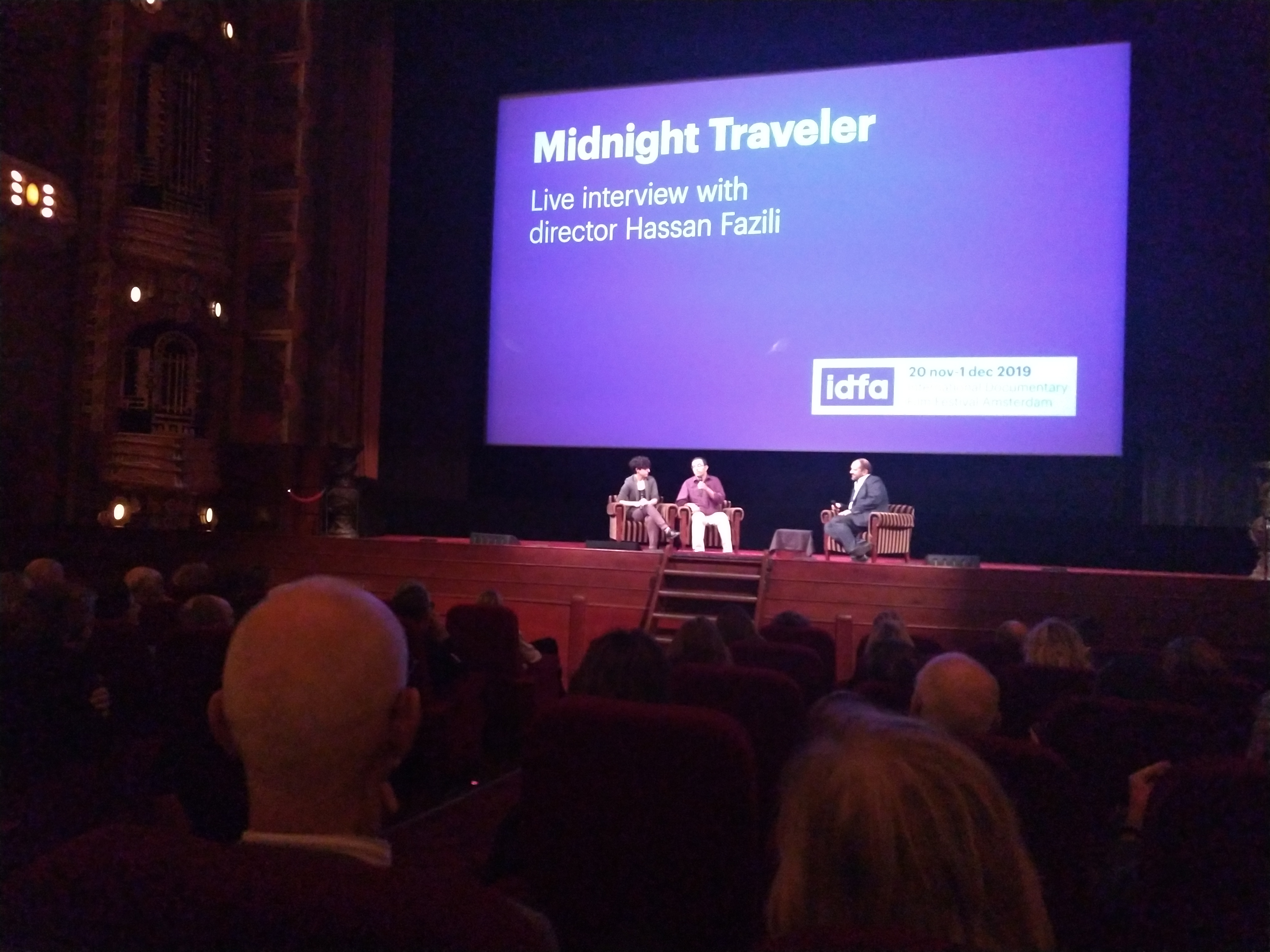Freedom of Festival-Travel for Hassan Fazili
Good news, finally!
The appeal I had started last month (see here) and that is signed by well-known human rights activists such as Günter Wallraff, the heads of the Berlinale Film Festival, of IDFA Film Festival Amsterdam and of various activists for Human Rights has been successful. Hassan Fazili could travel to Amsterdam yesterday together with me for a special screening of his documentary Midnight Traveler (see here).
Earlier last week, Hassan Fazili was issued an intermediate travel allowance (Pass-Ersatz) for yesterday’s screening and for the Lugano Human Rights Festival to follow next month.

This picture shows Hassan Fazili and myself traveling to Amsterdam on the ICE yesterday with his interm passport. (The German word Pass-Ersatz is acutally symbolical of the limited rights regime he is still under. The German text in the document says: „Die Aufenthaltserlaubnis gilt nur für den Zweck des Besuchs des Internal Documentary Film Festivals Amsterdam.“ And in hand-written: „Die Erlaubnis gilt auch für einen Besuch des Filmfestivals in der Schweiz vo 09.-13.10.19“)
Allowance of travel for other forthcoming festivals out of Germany needs to be asked for and renewed every time. They are most probable to be issued though, as German authorities have indicated to us. Hassan Fazili would have liked to travel to Amsterdam with his family, as his wife and his children figure as co-authors of the film. They have all been active in one way or another in the shooting of the movie. The allowance at this stage has been limited to his person alone. Interestingly, there has been no helping hand or support from the main producers of the film to assist Fazili in coming to the mentioned festivals.

IDFA’s special screening for Midnight Traveler on Sept. 12th
In general, the situation of Hassan Fazili and his family has improved largely with our appeal and initiative.
That is: after his current paper elapses, chances are that he will be accepted in Germany with a refugee status and as an emergency case („Härtefall“), as authorities have told us.
His case is symbolic in many respects. It exemplifies how tens of thousands of people who are deprived of fundamental rights. His participation in international film festivals is enormously important for his future as filmmaker. To deprive him would be a damaging intervention in the career of Hassan Fazili. His case also exemplifies how tens of thousands of people who are deprived of fundamental rights. It thus is about to serve as a symbolical case for current European law on migration. Having said this, there are more filmmakers and authors stuck on the Balkan route and on the Hungarian border namely these days who have addressed me with their newest film productions that talk about their plight as refugees and equally filmed with smartphones. So the case of the Fazili family very likely is not an isolated one in the months to come very probably.

Hassan Fazili with his smartphone yesterday at the Phathé Tuschinski hall
The German daily Der Tagesspiegel has a longer report today on the case of the Fazili family (see here)
under the title of ‚Mein Film ist jetzt frei aber wir nicht‘ (My film is now free, but we are not). The quote mainly refers to the family’s expectation to see its case solved within the shortest delays. Hassan Fazili, at times, does not seem to trust the current developments in his favour. Understandably so, one might say: after a nearly three year long odyssee from Afghanistan to Europe, the family has suffered numerous threats for their health and their lives. Permanently in quest for their rights and up until now treated as second class people and with no concrete perspective of a citizenship status so far, that would mean for the to escape discrimination and intermediate status.

Q & A with the author yesterday at Amsterdam’s Pathé Tuschinski
We have had some copy cats and free riders in the process unfortunately, who have claimed to be co-initiators of the appeal and derive certains prerogratives from it. This comes from local organisations in the German civil society who partly try to intstrumentalize refugeees and their fate. The fact istelf is not new. It is actually rather familiar to working fields werere people in need depend on help, funding and/or assisting in various regards. These same groups have claimed also and propagate that the Fazili famiy keep a low profile and not go online or in print via the media. The opposite is actually true: only speaking out to the media about his case will help the Fazili family getting to their legitimate rights.
